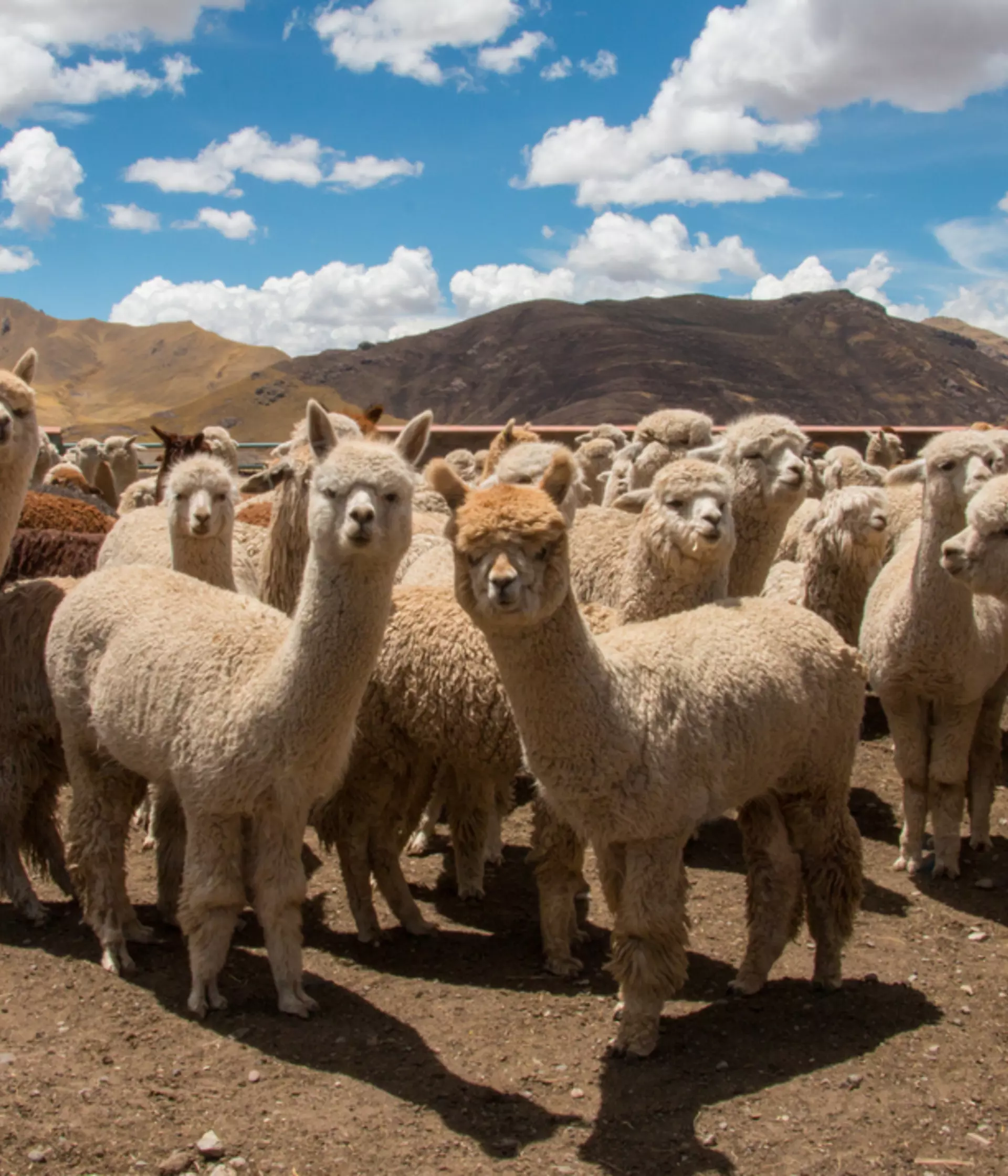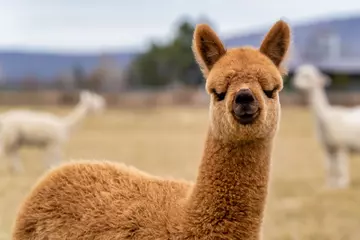
Alpaca facts
- Alpacas are widely domesticated, bred from wild vicuña, which are native to the Andes.
- They don't drink much water and eat around 4lb of food per day, much less than their llama cousins.
- When alpaca babies are born, they'll hum to their mother who will hum back. As adults, alpacas may also hum when curious, happy, worried or cautious.
- Alpaca wool is highly valued and is used to make clothes and textiles, mainly in South America. Alpaca wool comes in 52 different natural colours and is one of the warmest wools.
- Alpacas have no upper front teeth, so are gentle grazers. They have padded feet that allow them to graze areas without doing too much damage.
What do alpacas eat?
Grasses, shrubs and most types of vegetation they come in contact with. Like many animals that live in dry areas they get most of their moisture from food.
Alpaca habitat
Mountainsides and valleys of the Andes, South America.

Where are alpacas from?
South America: Ecuador, Northern Chile, Bolivia and Peru.
Alpaca lifespan
Alpacas have a lifespan of 15 - 20 years.
Alpaca threats
Coyotes, mountain lions and other big cats.
Our alpacas
Meet our cheeky alpacas, which joined the zoo during the third Lockdown in 2021. This furry male trio are all bursting with personality!
Alpacaccino
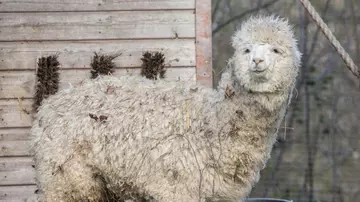
Born: 24th April 2020
Likes: Rolling around in hay and grass - this alpaca definitely prides himself on his self-massage skills, which means he’s often sporting some very fetching twigs and leaves in his hair.
Dislikes: Being groomed by keepers after rolling around in hay and grass. Keepers are beginning to suspect it’s a fashion statement...!
Cuenca
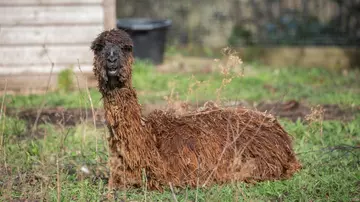
Born: 29th June 2020
Likes: Investigating what the zookeepers are doing – this alpaca is definitely the most confident of the trio and doesn’t miss a thing! He is also the most vocal and likes to ‘hum’ (a noise alpacas make to communicate). As a result, he’s already got a name for himself at the zoo as ‘the singing alpaca’.
Dislikes: Keepers haven’t found anything yet – time will tell...
Cookie
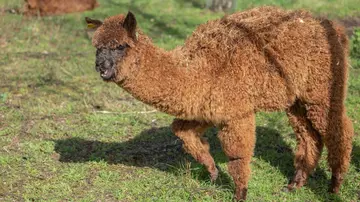
Born: 30th July 2020
Likes: Being with his alpaca pals – he loves nothing more than snuggling up to his stablemates and following them around as they go about their daily lives.
Dislikes: Being apart from his alpaca pals – this alpaca is definitely a big softy who loves company.
